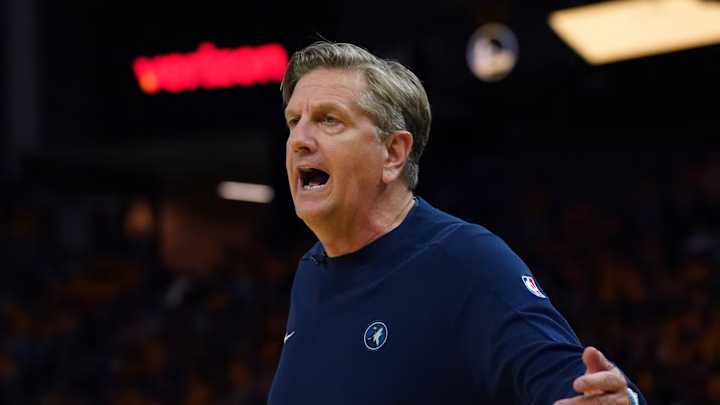Heading into the season, the Minnesota Timberwolves' lack of a point guard was well-discussed. As a result, it should come as no surprise that the Wolves' point guard play has already hurt the team. Just hours before the season, it was announced that Donte DiVincenzo would replace Mike Conley in the starting lineup.
This allowed the Wolves to adopt a point guard committee approach, with DiVincenzo, Anthony Edwards, and Julius Randle all taking on playmaking duties. Mike Conley's 18 minutes per game currently leads all Wolves' point guards. Regardless, it's worth noting that the 38-year-old was averaging just 11 minutes before Edwards' injury.
Then there's Bones Hyland and Rob Dillingham. Hyland has played real minutes over the 2024 lottery pick, but neither has impressed much. This problem could ultimately derail the Wolves' championship aspirations.
The Mike Conley problem
Conley has declined mightily as a creator and is a defensive target. While it's a small sample size, Conley is shooting an abysmal 25 percent from the field, a number that's similar to last year's playoff average of 30.2 percent.
Following Edwards' injury, Conley returned to the starting lineup against the Denver Nuggets. He had the best game of the season, notching 10 points and four assists. However, Conley shot 3-8 from the field and was picked on defensively.
The Ohio State product can still organize the offense at a high level and thus gives the Wolves some value. That's the problem: the Wolves need a playmaker, but some of Conley's deficiencies make it hard for him to play big minutes.
Conley's lack of shot creation and defense will be even more problematic during this two-week stretch without Edwards.
Hyland and Dillingham haven't proven they can play real minutes
Hyland has played a bigger role than I ever expected. He is averaging 14.3 minutes, 5 points, and 1.5 assists on 42.1/27.3/50 shooting splits. I understand playing Hyland real minutes in the right matchup, and at times, he's impressed. However, during Monday's loss to the Nuggets, it didn't make much sense. Hyland hijacked the offense, shooting 1-6 from the field and committing two turnovers.
The Wolves need two things from their point guard: playmaking and shot creation. Hyland can provide the former (not very efficiently) and rarely leans into passing. He's a pure microwave scorer, and the Wolves need some extra perimeter shot creation. But I can't trust Hyland in high-leverage situations, and I doubt Chris Finch would.
The elephant in the room is Dillingham, whom the Wolves traded two first-round picks to draft in 2024. The Kentucky guard didn't play in the first game of the year and exited the second game of the year with a nose injury after just 30 seconds.
On Monday, he returned to the court, receiving a season high of 12 minutes. Dillingham notched four points, two assists, on 2-2 shooting. He did record three turnovers, but it wasn't a bad showing by any means.
Dillingham has the ideal skill set the Wolves need. Nevertheless, he has struggled with decision-making and turnovers in his limited minutes. Plus, at 6-foot-1, 175 pounds, he's a target on defense. At some point, Finch will have to give him a real chance, but there will likely be some growing pains, which isn't ideal in a loaded Western Conference.
It's not even November, and Wolves fans are thinking of what point guards they can land at the trade deadline. While this is understandable, it's unclear if a true needle mover will be available, specifically given the Wolves' high payroll and lack of draft capital.
Unless something changes, this will become a truly impossible situation for the Timberwolves.
